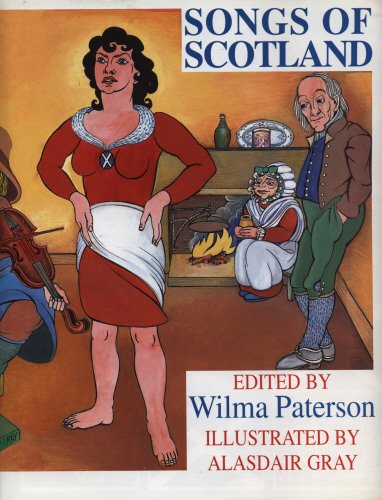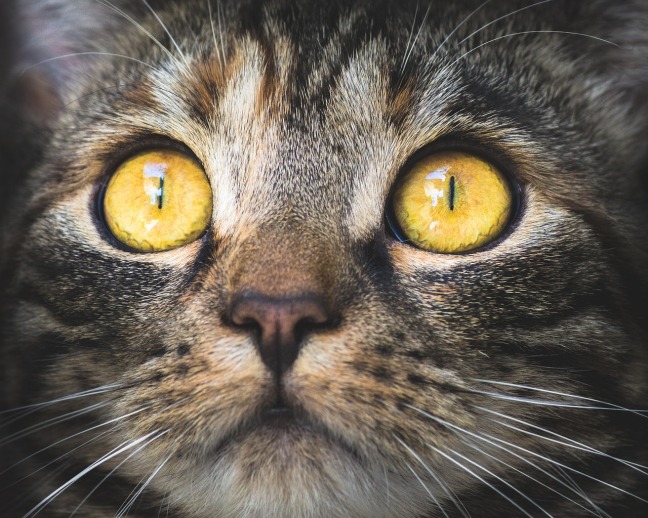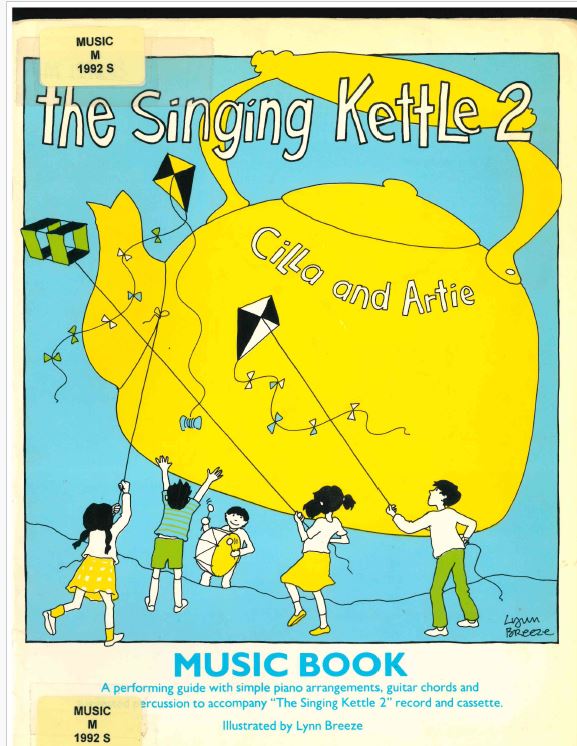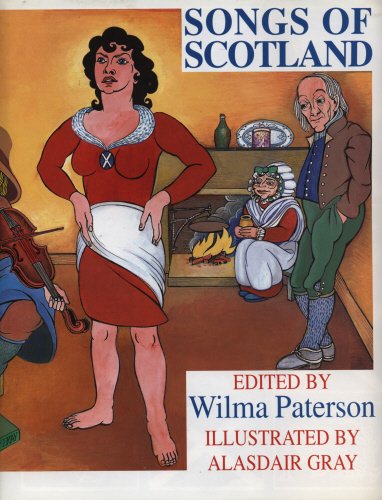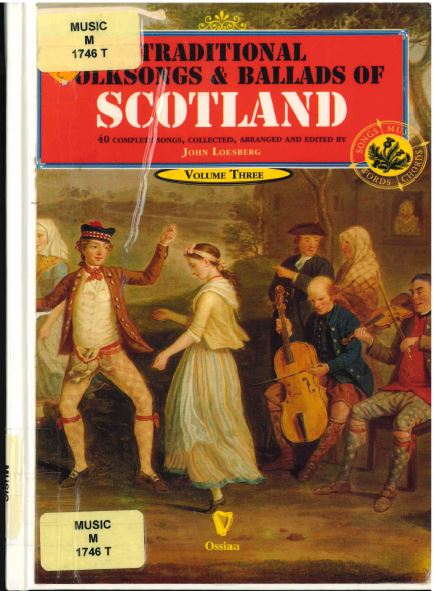Published in 1997, this is quite an unusual collection: I can’t think of another Scottish song book illustrated throughout by a famous contemporary artist. Inside, the drawings and graphic art are monochrome – only the cover is in full colour. This, it must be said, is not quite what Gray initially envisaged; the decision was necessitated by cost, on the part of the publisher. It’s still a beautiful piece of – well, book art – I imagine it sitting on coffee tables. It doesn’t sit very easily on a piano music stand, due to its bulk.
Today, as I opened it, the dust-jacket fell back, revealing an equally beautiful embossed cloth cover. I just had to share it!

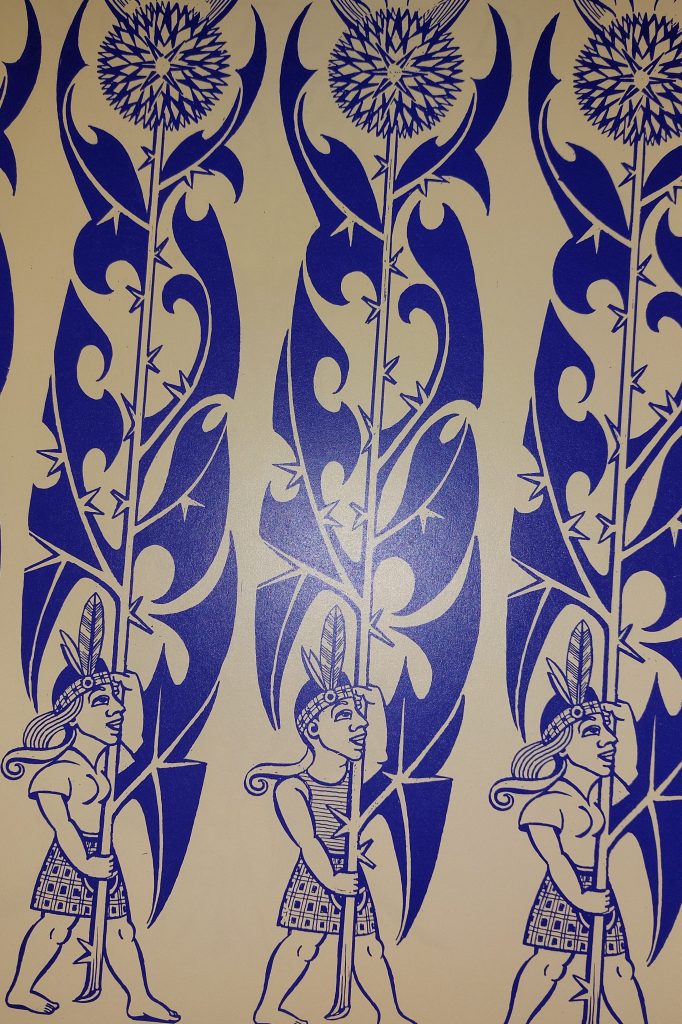
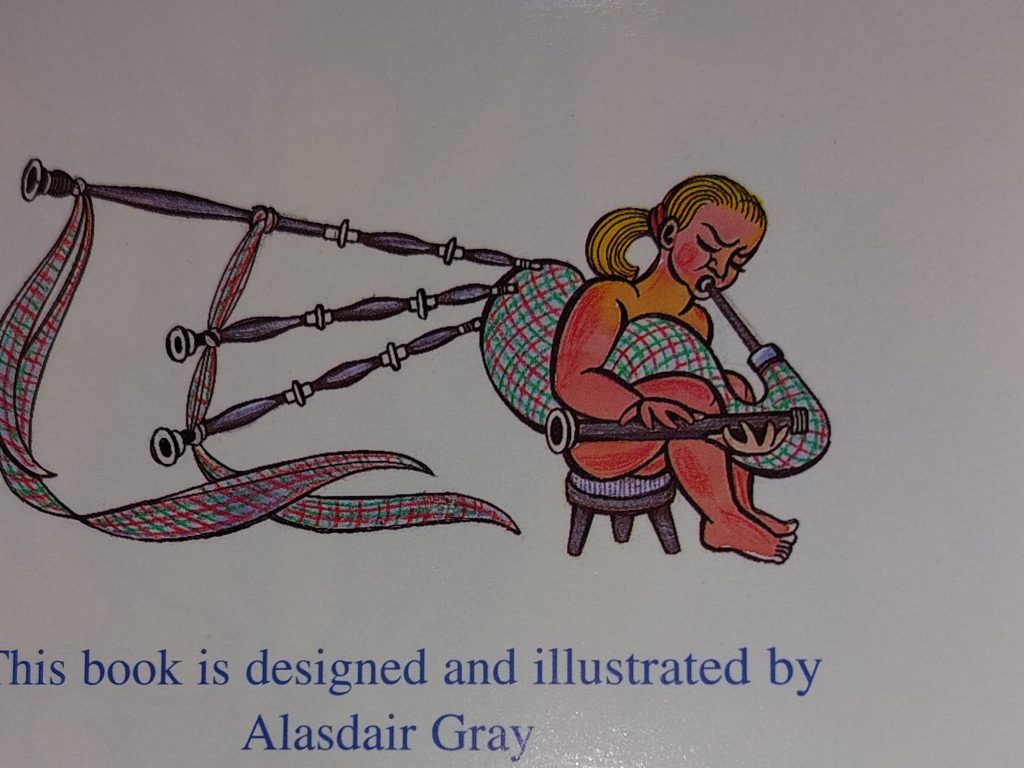
It’s a very traditional anthology – you won’t find modern repertoire here. But it’s carefully annotated, with a bibliography bearing witness to the amount of research that went into it.
I have looked at contemporary reviews, and other related material – and there’s more I could say about this publication. However, I am keeping this for another day.
If you’d like your own copy, it’s out of print but easy to source second-hand. (Here’s the Abe Books link.)
Songs of Scotland, ed. by Wilma Paterson, designed and illustrated by Alasdair Gray (Edinburgh: Mainstream Publishing, 1997)


